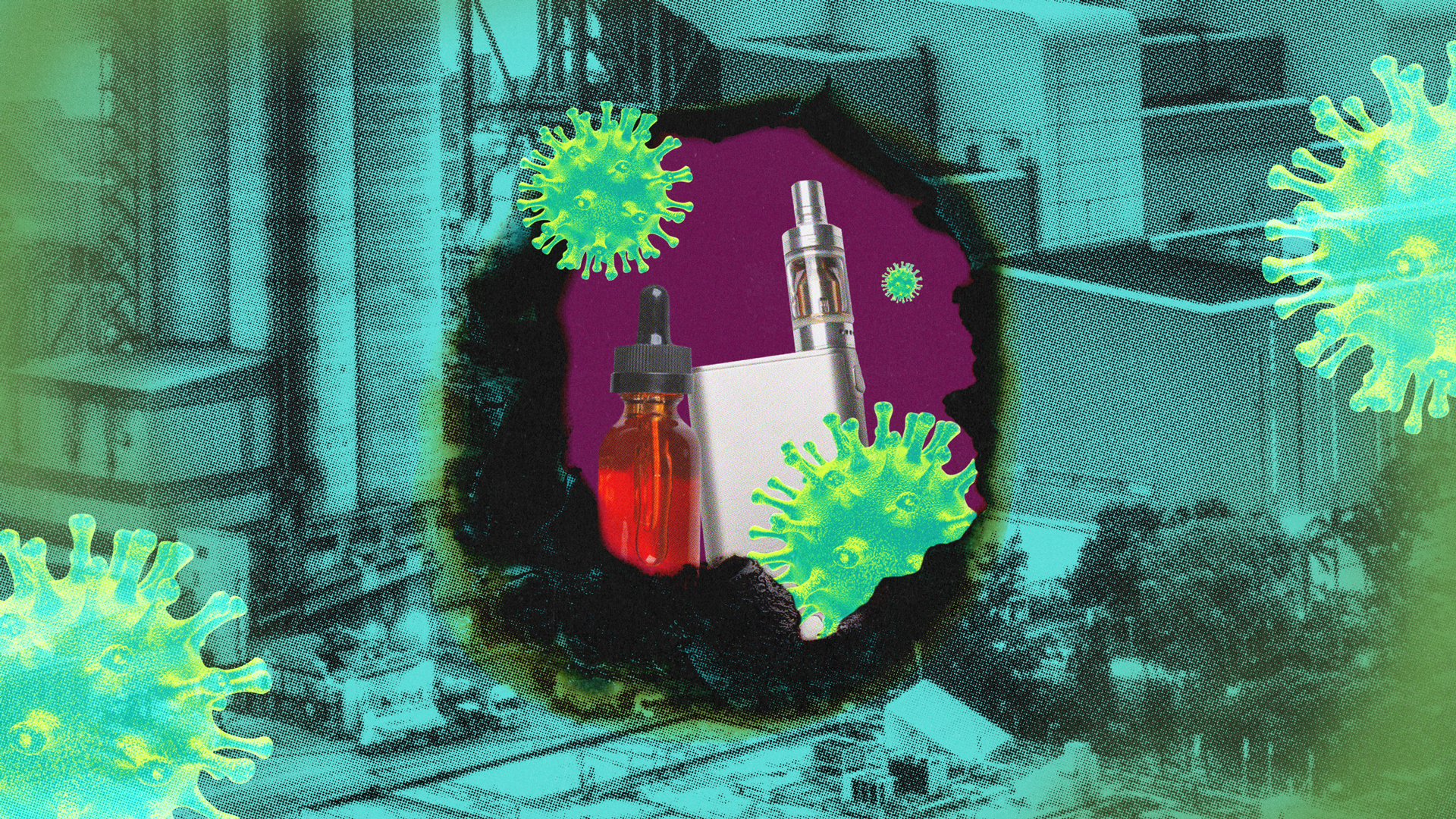Coronavirus Could Lead to a US Vape Shortage, Sources Say

Credit to Author: Alex Norcia| Date: Fri, 14 Feb 2020 18:05:28 +0000
Charles Harris was getting worried. He thought the Chinese companies that manufacture vapes would be back up and running, which would mean his own disposable vape company would be OK. But as he looked out at the empty streets of Shenzhen from his apartment on Wednesday morning, it was clear the effects of the deadly coronavirus were far from over.
Harris owns and operates a North Carolina–based disposable vape company called NicFit Go. Around this time of year, he often travels to Shenzhen, where he has a second home. The city, which connects Hong Kong to China's mainland, is commonly referred to as the "vaping capital of the world." But the coronavirus virus had transformed into an epidemic, and few people were returning to work, on government orders.
When Harris spoke with VICE, it was becoming increasingly clear that the coronavirus would have a global impact on various facets of the economy. But its economic ramifications could be particularly damaging for those who work in the vape industry.
About 90 percent of the world's vaping and e-cigarette hardware is produced in Shenzhen, in close to 1,000 factories. If the Chinese government keeps many of its citizens away from work for much longer, there could soon be a significant delay on shipments of vaping products, if not an outright shortage.
Larger vaping companies with facilities in Shenzhen, like JUUL Labs, should have the resources to avoid a problem. But small- and medium-size businesses have reason for concern if the virus isn't soon contained. Compared to Chinese manufacturing giants like Foxconn—which produces parts for Apple—many vape distributors simply do not export enough to be a top priority, and some expect that they won't be able to start sending their inventory overseas again for a couple of months.
In mid-February, one senior account manager for the wholesale vape supplier VaporBeast, Scott Alwine, told his customers to anticipate the worst. "We are expecting a major national shortage on coils and hardware starting toward the end of [February] and running through March," Alwine wrote in an email to customers. "Possibly a good portion of April. We encourage you to stock up now to ensure you will have products for your customers."
Since Harris touched down in China, only more reports have surfaced about Chinese plants of all sorts remaining closed. Companies need government permits to reopen, and doing so requires adhering to stringent safety measures. "If you look at any of the wholesale accounts online, you can tell that they're running out of everything," Harris said.
"The entire supply chain will be disrupted," said Dimitris Agrafiotis, a consultant for vape manufacturers who frequently visits Shenzhen. "It'll certainly hurt the industry as a whole. It's all built on technology and the next new thing. If production is delayed, so is the evolution of these products."
Harris said that some vape manufacturers have already started to consider other alternatives.
"I've heard people talking about opening up factories in Mexico," he said.
For U.S. vape companies, the coronavirus outbreak comes at a particularly inopportune time too. This year, Chinese New Year fell on January 25, right before news of the virus began to make headlines. In China, the new year is followed by a 15-day festival, during which time factories can close up to two weeks and many employees return to their villages for a break to be with their families.
Because of the outbreak, the date to resume operations has been pushed even further. One manager at a major vape import and distribution company, who requested anonymity out of fear of more government crackdown on his business, said such fears have been "a point of discussion both internally and within the industry for several weeks now."
"Having worked in China myself for several years, the uncertainty of government action is always the biggest concern," the manager added. "We just do not know how government policy will change from day to day, both at the national and provincial levels."
The uncertainty is taking a toll on an industry that has already grappled with a string of recent crises. Last month, the Trump administration instituted a partial ban on flavored vaping products after mounting criticism over teenage vaping numbers and a string of vaping-linked illnesses linked to illicit THC cartridges. Following the hysteria in the U.S., China removed the sale of e-cigarettes online as well.
As for concerns about contamination, there is little chance that e-liquids or the devices themselves could be contaminated by workers with the coronavirus in China and infect users in the U.S., according to Stanley Perlman, a professor of microbiology and immunology at the University of Iowa and an expert in coronavirus infections.
"The virus can probably be viable for two to three days on inanimate surfaces, but I think that the likelihood of surviving shipment and transmitting to someone is virtually nil," Perlman said.
Other players in the vaping business point out that the circumstances in China simply distract from more pressing obstacles closer to home.
"Our own government is the biggest problem," said Rick Avila, a major nicotine supplier in the U.S. "We should be fighting the states pushing through full-scale prohibition. The problem isn't anywhere else. It's here."
Sign up for our newsletter to get the best of VICE delivered to your inbox daily.
Follow Alex Norcia on Twitter.
This article originally appeared on VICE US.